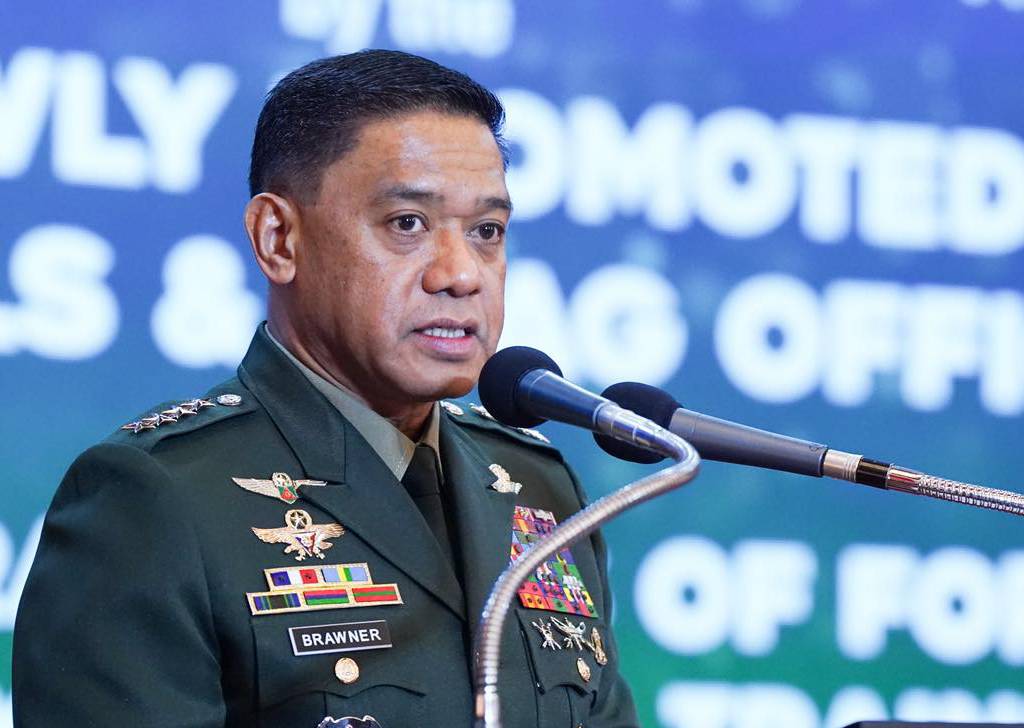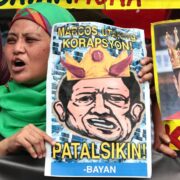AFP says talk of pension cut ‘baseless, malicious’

President Marcos is not abolishing the pensions of retired generals despite talk of destabilization allegedly coming from their ranks, the Armed Forces of the Philippines said on Saturday.
“This claim is baseless, malicious and intended to mislead,” the military said in a statement, maintaining that the President did not issue a policy or directive suggesting the removal of military retirement benefits.
The clarification came hours after AFP spokesperson Col. Francel Margareth Padilla warned on Saturday morning that withholding pension was among the possible sanctions that might be imposed on retired officers making seditious statements against the government.
Later on Saturday afternoon, Cavite Rep. Francisco “Kiko” Barzaga posted on his social media account that the President “threatens to remove AFP pension in fear of military sedition.”
These come on the heels of calls for active military personnel to withdraw support for Mr. Marcos from the ranks of retired officers during the anticorruption street protests on Sept. 21.
AFP chief of staff Gen. Romeo Brawner Jr. confirmed in a forum on Oct. 3 that some retired officers and active younger officers reached out to him during the Sept. 21 protests calling for the military to intervene amid the corruption scandal rocking the government.
Active military officers rejected their calls, which included mounting a “coup d’etat in order to come up with a reset of the Philippine society,” or a withdrawal of support for the Commander in Chief, according to Brawner.
Review
In a forum on Saturday morning, Padilla told reporters that the AFP was reviewing the military pension system and the possibility of trying retirees for court-martial over their calls for withdrawal of support.
“They are in the civilian category, but we said that since they are receiving a pension, we will study how this will fall into play,” she said. “The AFP is not [going to] take this sitting down.”
Appearing in the same forum, Navy Rear Adm. Roy Vincent Trinidad agreed with Padilla and said: “When you receive a pension from the government, it follows that you must be responsible for what you receive, so this is included in the study of AFP legal officers.”
Trinidad singled out retired officers who “spread falsehoods and fake news to confuse the minds of the active military.”
Retired Air Force Maj. Gen. Romeo Poquiz apparently felt alluded to and called the move to cancel his pension “a grave distortion of both law and justice.”
“This move is actually not a threat to me personally—it is a warning to those still in active service, as more and more soldiers express concern and sympathy for the growing public protests against massive corruption in government,” Poquiz said.
“Let it be clear: loyalty to the nation does not end at retirement, and truth-telling is not sedition,” he added.
Freedom of expression
Poquiz was among the leaders of retired soldiers who marched to the AFP headquarters in Camp Aguinaldo ahead of the Sept. 21 protests, demanding a meeting with Brawner.
Meanwhile, the labor coalition Nagkaisa warned that revoking the pensions of military retirees supporting the anticorruption campaign would violate their freedom of expression.
“This is not only misplaced discipline—it’s suppression of freedom of expression and intimidation of retirees,” Nagkaisa chair Sonny Matula said. “You cannot silence conscience with the threat of hunger.”
Under current laws, retired officers’ pension may only be forfeited if they are convicted of a crime involving moral turpitude and disloyalty, following due process and a final judgment of the court.
“The pension of a retired military personnel is protected under existing laws. It is considered an earned benefit resulting from at least 20 years of faithful, honorable, and dedicated service to the nation,” the AFP said.
The AFP also called out Barzaga for his post, saying, “Disseminating false claims that sow division and erode public trust is unbecoming of a government official.”
The Marcos administration has scrapped its proposal to reform the pension system for military and uniformed personnel (MUP). Economic managers, who pushed for the legislation, criticized the current MUP pension system to be fiscally unsustainable. —WITH REPORTS FROM GILLIAN VILLANUEVA AND PNA

















